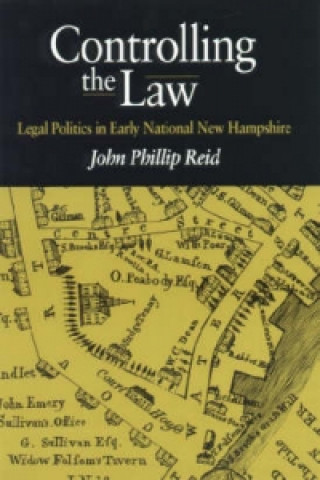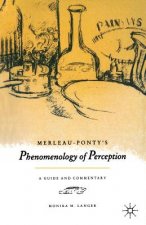
Dostawa
Doradca ds. zakupów
16 126 809 książek w 175 językach







Pokaż wszystkie języki (175)





Jednak się nie przyda? Nic nie szkodzi! U nas możesz zwrócić towar do 30 dni
 Bon prezentowy
O dowolnej wartości
Bon prezentowy
O dowolnej wartości
Bon prezentowy to zawsze dobry pomysł. Obdarowany może za bon prezentowy wybrać cokolwiek z naszej oferty.
Controlling the Law
 Angielski
Angielski
 167 b
167 b
30 dni na zwrot towaru
Mogłoby Cię także zainteresować


In today's courtroom, the jurors evaluate the evidence and pronounce the verdict while the judge has final authority in interpreting the law--but it was not always so. In colonial America, the jurors enjoyed a much greater say. Legal historian John Phillip Reid recounts how the judges gained their modern authority in the early nineteenth century by instituting courtroom practices modeled on the English "common law" judicial system. Reid brings this transformation, which in the days of the Early Republic spread throughout the states and even to the federal courts, down to human scale by focusing on the legal and judicial career of one man: Jeremiah Smith. First as a U.S. District Attorney, later as the Chief Justice of the New Hampshire Supreme Court, Smith promoted a series of reforms between 1797 and 1816. Intent upon placing the law in the hands of professional lawyers, he standardized legal procedures. While Smith made the judge lord of the courtroom at the expense of the jurors, he simultaneously mandated the publication of judicial reports that, by setting a series of precedents, served both to enhance the authority of one reading of the law and to impose limits on subsequent interpretations. As judicial decisions became more uniform, Smith believed, the law itself would become more certain. Not everyone supported these reforms, however. Jeffersonians claimed that such measures threatened to take power from the layman and feared that judges would replace democratically elected legislators as the real lawmakers. Smith himself proved eager to flex judicial muscle and soon found himself wrestling the state's governor, William Plumer. Smith's questionable rulings prolonged a trial involving Plumer's brother; and in 1805, when Plumer failed to honor a summons, Smith ordered his arrest. Plumer eventually exacted his revenge and removed Smith from the chief justice's bench. This conflict between two former friends adds a human dimension to legal history. Thanks largely to the reforms introduced by Jeremiah Smith in New Hampshire, by 1830, legal theory, legal practice, and the law itself were much more uniform throughout the United States than they had been just twenty-five years before. If the reformers had not, as Reid argues, intended to favor any particular class, they did prepare the way for the development of a reliable legal system able to serve merchants and capitalists in the Industrial Age.
Informacje o książce
 Angielski
Angielski




 Jak kupować
Jak kupować



















